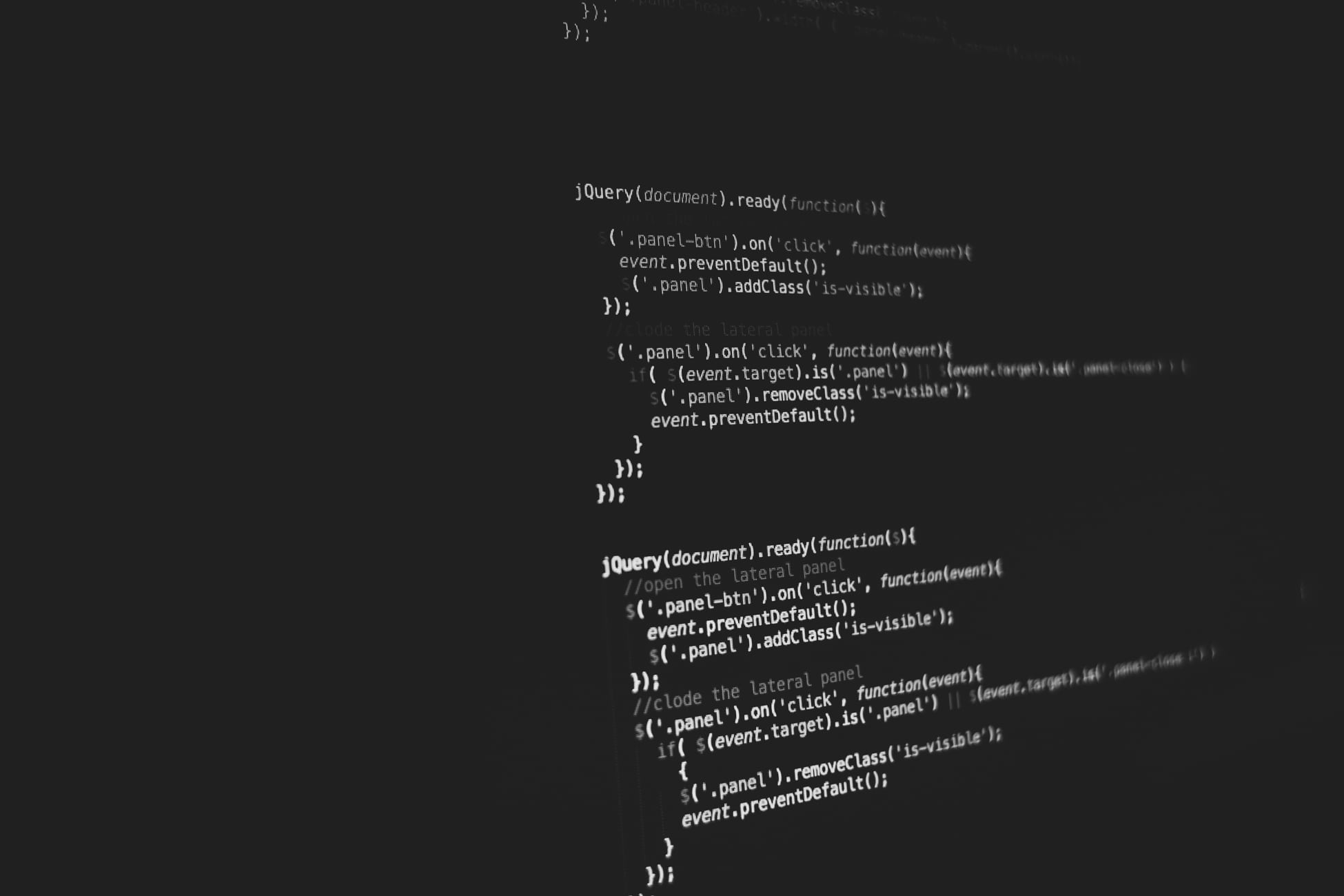In recent years, computer science has become a popular major because of the high employment rate and high salary. Of course, it also becomes a good choice for many students who go to university in the UK. If you want to get a computer science degree, you have to consider many questions. What is computer science? What are the entry requirements? Which university should you choose? If you want to learn more about computer science, please read on.
What is computer science?
Computer science, or CS, is a practical discipline that focuses on the systematic study of the theoretical foundations of information and computing and how they are implemented and applied in computer systems. It is often described as the systematic study of the algorithmic processes that create, describe, and transform information.
CS can be roughly divided into the following areas:
- Hardware: digital circuit, integrated circuit, memory, various hardware design and verification methods, etc.
- System: computer framework (instruction set, serial, parallel, grid, cloud, etc.), embedded, real-time systems, etc.
- Software: operating systems, virtual machines, programming languages, tools and methodologies for software design/development/validation, etc.
- Network: computer network framework, protocols, components, path algorithms, performance analysis, etc.
- Computing theories: computability, formal languages and automata, cryptography, logic, algorithm analysis, etc.
- Computing methods: numerical computing, symbolic computing, parallel computing, computer graphics, artificial intelligence, machine learning, etc.
Why study computer science?
Many students choose computer science for its high earning potential, various job opportunities, etc. Here are five reasons to study computer science.
1. The needs of social development
Now the world has entered a stage of rapid development, mainly relying on high and new technology to promote social progress, among which computer science is almost an important discipline throughout. Both artificial intelligence (AI) and space technology are inseparable from computer science. Learning computer science well can have many positive impacts on the world.
2. Multiple job opportunities
Because the development of modern society needs computer science, all walks of life will recruit computer science graduates. Therefore, if you get a computer science degree, you will have more job opportunities than other majors.
3. High salaries
Computer scientists are in demand, and their salaries reflect it. Computer science graduates have high starting salaries and good job prospects. Their average salaries are significantly higher than those of graduates from other majors.
4. Develop various skills
In addition to the ability of using computers, studying computer science can also develop other skills, such as critical thinking, problem-solving, analytical skills.
5. Transferable CS knowledge
The necessary skills for computer science are also valued in other careers. The skills of solving problems and analysing data are vital in many other fields, such as management and marketing.
What Computer Science degrees can you study?
Computer science usually appears on the list of majors in two colleges — the College of Arts and Sciences and the College of Engineering. The CS under the College of Arts and Sciences will only have an MS or Ph.D. degree, and the CS under the College of Engineering will have an MS or Ph.D. degree and an M.E. degree.
When applying for computer science, students should pay attention to which course is in the professional list of which college, and what kind of degree type is it. Below is list of some computer science degrees.
- Computer Science BSc/MComp
- Computer Science (Data Science) BSc
- Biology and Computer Science BSc
- Computer Science and Electronics BEng
- Computer Science MEng
- Information Engineering MEng
- Mathematics and Computer Science MMath
- Computing (Artificial Intelligence and Machine Learning) MEng
- Computing (Software Engineering) MEng
- Economics, Finance and Data Science BSc
Computer science specialisations

Computer science is a very broad subject that includes many fields. If you choose to further study or enter the workforce, most computer science graduates are also proficient in a field.
Below is a closer look at some of the most popular computer science topics.
Programming language
Generally speaking, a program is a set of instructions written in a particular language (C, C++, Java, Python) to achieve a particular task.
A programming language allows programmers (developers) to communicate with computers. It consists of a set of rules that allows string values to be converted into various ways of generating machine code, or, in the case of visual programming languages, graphical elements.
Internet of Things (IOT)
The Internet of Things, or IoT, is a network of interrelated devices that connect and exchange data with other IoT devices and the cloud. IoT devices are typically embedded with technology such as sensors and software and can include mechanical and digital machines and consumer objects.
These devices encompass everything from everyday household items to complex industrial tools. Increasingly, organizations in various industries are using IoT to operate more efficiently, deliver enhanced customer service, improve decision-making and increase the value of the business.
Cybersecurity
Cyber security refers to any technology or measure used to prevent cyber attacks or mitigate their effects. Cybersecurity aims to protect the systems, applications, computing devices, sensitive data, and financial assets of individuals and organizations from simple and indelicate computer viruses, complex and costly ransomware attacks, and everything in between. Cyberattacks can disrupt, damage and even cripple businesses, and the cost to victims is rising.
Artificial intelligence
Artificial intelligence (AI) is a technology that enables computers and machines to mimic human intelligence and problem-solving abilities. AI can be used alone or in combination with other technologies (e.g., sensors, geolocation, robots) to perform tasks that would otherwise require human intelligence or human intervention. As a field of computer science, artificial intelligence includes (and is often mentioned together) machine learning and deep learning. These disciplines involve the development of AI algorithms modelled on the decision-making process of the human brain that can “learn” from available data and make increasingly accurate classifications or predictions over time.
Algorithms
In mathematics and computer science, algorithms refer to a defined limited number of steps or sequences that a computer can perform. It is often used in computing, data processing, and automated reasoning. Algorithms can use conditional statements to shift code execution through a variety of pathways (known as automated decisions), derive valid inferences (known as automated reasoning), and ultimately automate.
Human-computer interaction
Human-computer interaction is a discipline that studies the interaction between systems and users. Systems can be a variety of machines, or they can be computerized systems and software. The human-computer interface usually refers to the visible part of the user. Users communicate with and operate the system through the human-computer interface. As small as the play button on a radio, as large as the dashboard on an airplane, or the control room in a power plant, are all examples of human-computer interaction.
Computer science entry requirements
Each university has different entry requirements for computer science courses. Generally speaking, the College of Arts and Sciences requires students to work hard in language, and the College of Engineering has specific requirements for students’ undergraduate background and research experience.
The UCAS points required to study a computer science degree range from 80 (CDD at A-level; MMP at BTEC level) to 144 (AAA at A-level; DDD at BTEC level). The table below lists the different requirements for each specific test.
| Type | Minimum Grades/Points Required (with Foundation Year) | Minimum Grades/Points Required | Maximum Grades/Points Required | Average Grades/Points Required |
|---|---|---|---|---|
| UCAS Points | 48 | 80 | 144 | 112 |
| A-levels | EEE | CDD | AAA | BBC |
| BTEC Level 3 National Extended Diploma | PPP | MMP | DDD | DMM |
| International Baccalaureate | 24 | 27 | 38 | 30 |
Computer science requirements in different universities (A-level)
| UK ranking | University | Entry requirements (A levels) |
|---|---|---|
| 1 | University of Oxford | A*AA (Must include at least an A in Mathematics, with the A* in Mathematics, Further Maths or Computing/Computer Science.) |
| 2 | University of Cambridge | A*A*A (A level Further Maths is very strongly encouraged.) |
| 3 | Imperial College London | A*A*A-A*AAA (An A* in Mathematics is required.) |
| 4 | University College London (UCL) | A*A*A (An A* in Mathematics is required.) |
| 5 | University of Edinburgh | A*A*A*-AAB (An A in Mathematics is required.) |
| 6 | King’s College London | A*A*A (An A in Mathematics or Further Maths is required.) |
| 7 | University of Manchester | A*A*A* (Must include an A* in Mathematics and a minimum of one Science subject in the remaining A-Levels at A*.) |
| 8 | University of Warwick | A*A*A (An A in Mathematics is required.) |
| 9 | Lancaster University | AAB |
| 10 | University of Bristol | A*AA (An A* in Mathematics is required.) |
Experience that would be weighed in an application
- Work experience or shadowing within a computing-related company
- Volunteering to help people with computer skills or lessons
- Involvement in related clubs, competitions or challenges
- Knowledge of programming languages, making your website or creating a small game
- Finding out more about topics of interest through books, IT magazines online, videos like Computerphile YouTube series, or podcasts
- STEM summer schools, if eligible, such as UNIQ or Sutton Trust
Best computer science universities in the UK
British higher education is among the best in the world. Computer science also leads the world. Some universities don’t have sufficient student accommodation, so you can consult uhomes.com to find your ideal apartment. Based on satisfied with teaching, satisfied with feedback, student to staff ratio, spend per student, average entry tariff, value added score, career after 15 months and other factors, the Guardian ranks UK universities for computer science courses.
| Ranking | Institution | Guardian score/100 |
|---|---|---|
| 1 | University of Oxford | 100 |
| 2 | University of Cambridge | 97.7 |
| 3 | University of St Andrews | 93.4 |
| 4 | University of Edinburgh | 88 |
| 5 | Imperial College London | 87.8 |
| 6 | UCL | 87.1 |
| 7 | Lancaster University | 86.1 |
| 7 | Liverpool Hope University | 86.1 |
| 9 | University of Dundee | 84.7 |
| 10 | Durham University | 84.5 |
| 11 | University of Sheffield | 83.6 |
| 12 | University of Bath | 83 |
| 13 | University of Bristol | 82.3 |
| 14 | Aston University | 82 |
| 15 | Heriot-Watt University | 81.8 |
| 16 | University of East Anglia | 80.7 |
| 17 | King’s College London | 79.7 |
| 18 | University of Manchester | 79.4 |
| 19 | University of Southampton | 78.8 |
| 20 | University of Surrey | 78.3 |
Computer science Clearing
Computer Science Clearing is a chance for students who fail to gain admission to a computer science program during the first college admissions process. During the Clearing period, students can check available courses through the university’s official website or the UCAS platform and contact the relevant institution directly to apply.
A computer science degree usually attracts a large number of applicants due to its wide career prospects and high employment rate, so the vacancies for computer science courses may be relatively limited. Students who are successful in obtaining a Clearing course will be able to join the program at the beginning of the new academic year to continue their academic journey.
As of August 14, 2024, there are already 154 universities offering 2,089 degree courses related to computer science. Don’t wait any longer. Please take the time to apply for courses and Clearing accommodation in time. If you apply too late, you may not be able to live in the apartment you want.
Job opportunities in computer science

At present, society is in a stage of rapid development, and it is urgent for computer science talents to participate in all walks of life. In recent years, some new jobs have been created for computer science graduates to adapt to social development. If you get a computer science degree, you will have a wide range of employment opportunities. Here are some of the positions.
- Business systems engineer
- Cloud engineer
- Data analyst
- Database administrator
- Games designer
- IT consultant
- Mobile application developer
- Network engineer
- Software engineer
- Web designer
What is the graduates of computer science salary?
Many students have always been interested in computer science because of the high salary. Computer science graduates are expected to earn a starting salary of between £17,000 and £27,000.
In the middle of your career, the average salary will depend on the field you are working in. Software developers are likely to earn between £40,000 and £57,000 a year, while network engineers are likely to earn between £50,000 and £65,000 a year. As always, in leadership roles, managers and directors earn big bucks. Consulting may also be lucrative, but may offer short-term, recurring contracts.
Below is a list of salaries for some computer science graduates.
| Job Title | Salary Range | Average Salary |
|---|---|---|
| Software Engineer | £27k – £59k | £38,610 |
| Software Developer | £23k – £49k | £31,818 |
| Senior Software Engineer | £42k – £82k | £57,348 |
| Lead Software Engineer | £42k – £84k | £57,914 |
| Front End Developer / Engineer | £24k – £52k | £33,199 |
| Sr. Software Engineer / Developer / Programmer | £43k – £93k | £61,549 |
| Junior Software Engineer | £21k – £33k | £26,445 |
| Software Engineer / Developer / Programmer | £24k – £54k | £34,726 |
| Web Developer | £21k – £41k | £29,008 |
| Data Engineer | £29k – £56k | £40,384 |
| Full Stack Software Developer | £23k – £47k | £32,533 |
| Graduate Software Engineer | £23k – £43k | £30,898 |
| Data Scientist | £27k – £55k | £38,829 |
| Data Analyst | £23k – £49k | £32,151 |
Computer science application
Knowing so much information about computer science, then how to apply for the school you want to go to?
Whether the application requires an interview
As for undergraduates, some schools, such as University of Oxford, University of Cambridge, Imperial College London, require students to attend an interview if they perform well in their respective admissions tests and their application satisfies the entry requirements.
As for postgraduates, most computer science courses require applicants to attend an interview.
Information to include in your application
Computer science is a popular major and many people apply, so your A-level grades (or equivalent) and performance in any admissions tests and interviews will be crucial. Here is some helpful information you can include in your application.
- Making your own app, website or game in a programming language.
- Volunteer activities that can improve computer skills.
- Work experience in computer science.
- Participating in related competitions or clubs.
Computer science: a good choice for you
Computer science is a broad discipline that studies the principles and techniques of computers and the relevant applications. With the rapid development of information technology, computer science graduates have a wide range of job opportunities in computer science in various industries, including software development, data analysis, system architecture, etc. In summary, the Computer science major provides students with a solid theoretical foundation and practical skills that enable them to play an important role in the digital age.
FAQs on computer science
Computer science, or CS, is a practical discipline that focuses on the systematic study of the theoretical foundations of information and computing and how they are implemented and applied in computer systems. It is often described as the systematic study of the algorithmic processes that create, describe, and transform information.
Yes.
As of August 14, 2024, there are already 154 universities offering 2,089 degree courses related to computer science.
Clearing is open from 5 July and closes on 21 October 2024.
You can wait for the offer.
If you receive the offer, you may receive an email from the university. In the email, the school will remind you of a series of preparations you will need before enrolling, including applying for university Clearing accommodation, funding and applying for a visa.
The Guardian ranks UK universities for computer science courses, and here is the list.
- University of Oxford
- University of Cambridge
- University of St Andrews
- University of Edinburgh
- Imperial College London
- UCL
- Lancaster University
- Liverpool Hope University
- University of Dundee
- Durham University
- University of Sheffield
- University of Bath
- University of Bristol
- Aston University
- Heriot-Watt University
- University of East Anglia
- King’s College London
- University of Manchester
- University of Southampton
- University of Surrey








